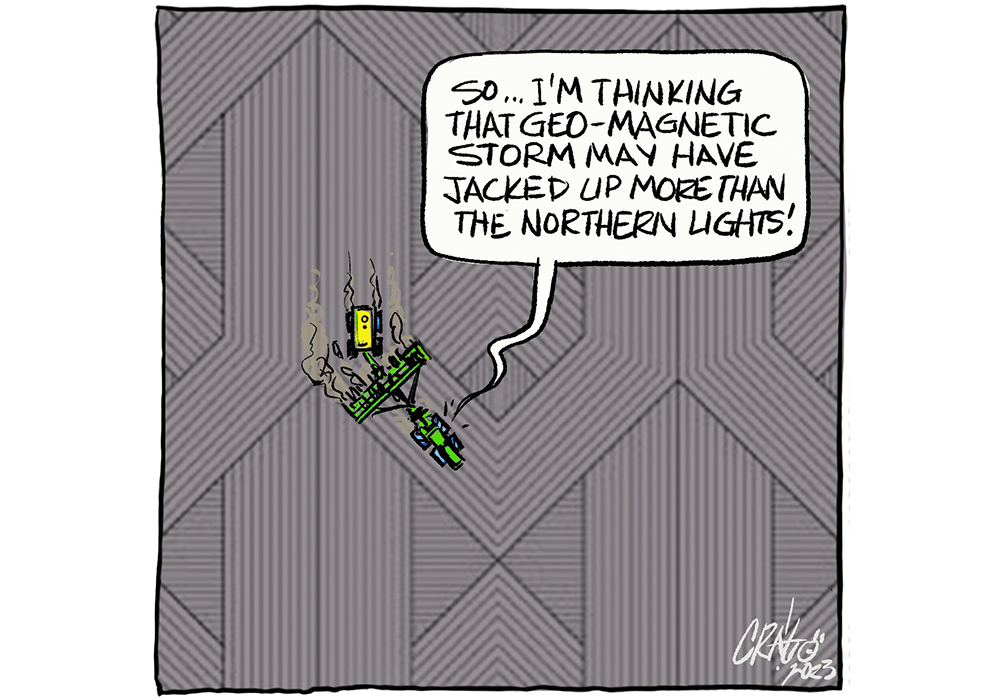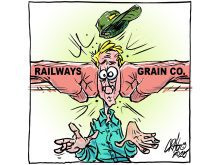Bunge’s proposed acquisition of Viterra has caused quite a stir in farm circles, and rightly so.
This is not your run-of-the-mill business deal. It could potentially reshape the future of grain handling and processing in Western Canada.
The acquisition or merger or whatever else it may be called, deserves careful attention by regulators, politicians and farmers. Considerable opposition to the proposal has been raised.
Read Also

Higher farmland taxes for investors could solve two problems
The highest education and health care land tax would be for landlords, including investment companies, with no family ties to the land.
Prairie farm groups not only raised their concerns but also asked three agricultural economists from the University of Saskatchewan to review the proposed acquisition.
Their report was critical, focusing mainly on how it would affect the export side of the grain business but also flagging potential impact on the proposed Viterra canola crusher at Regina.
“We estimate in our report that the restrictions at the Port of Vancouver alone could increase the export margin by $7.10 to $7.50 (per tonne),” said Richard Gray, one of the authors.
“And if you take 75 million tonnes of production in Western Canada, well, that’s $500 million a year right there that would come out of producers’ pockets. It’s real dollars.”
The federal Competition Bureau also didn’t have much good to say about the deal, but it focused on how crop purchases would be affected on the Prairies, particularly for canola.
It said the new entity would own most crushing facilities and primary grain elevators in Western Canada, compared to the situation today where Viterra competes with Bunge and G3, in which it has an ownership stake.
The areas around Altona, Man., and Nipawin, Sask., where crushing plants operate, came under particular scrutiny.
“When considered over the volume of purchases in these areas, the aggregate impact of these price effects is likely to be $7 to $9 million in the Altona area and $8 to $10 million in the Nipawin area in lost farm revenues annually,” the bureau wrote.
Bunge has it’s own take on this, of course, although it’s interesting that it hasn’t publicly criticized farmers or the Competition Bureau. Instead, it has taken aim at the university academics.
In an opinion published in this paper last week, the company’s chief executive officer addressed the ag economists’ views.
“They acknowledge their work is based on assumptions and incomplete data, which they refuse to share,” Gregory Heckman wrote.
“Using that flawed foundation, the report makes numerous unfounded and erroneous economic claims about the supposed negative impact of the proposed transaction.”
These kinds of business deals require a delicate balance. Many modern companies operate globally and need a certain economy of scale to properly function.
However, if companies carve out too big a monopoly for themselves, it benefits few except the companies themselves.
No one wants to stand in the way of properly conducted business, but the scope of the Bunge-Viterra deal certainly raises eyebrows.
It may not affect the farming landscape immediately, but it does have potential to drastically transform the future of grain handling and processing if the proposed Viterra canola crusher doesn’t go ahead or if competition for farmers’ grain is curtailed.
The government is conducting a public interest review, which will eventually go to Transport Canada and then the transport minister and cabinet.
Farmers who are concerned about this deal must communicate their misgivings with the government and MPs. A lot is riding on what happens next.
Karen Briere, Bruce Dyck, Barb Glen, Michael Robin, Robin Booker and Laura Rance collaborate in the writing of Western Producer editorials.















